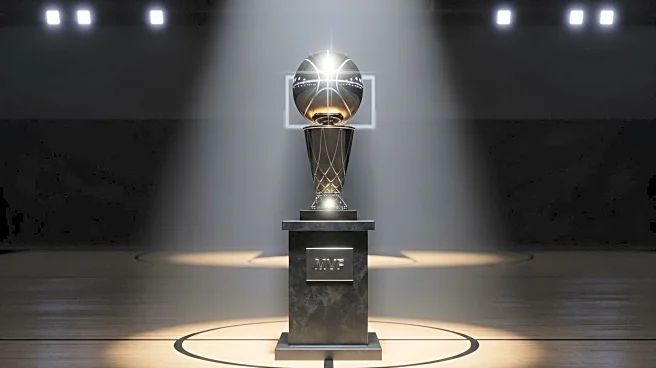What's Happening?
LeBron James, a prominent figure in the NBA, has yet to secure a regular-season MVP title while playing for the Los Angeles Lakers. Despite his impressive performance and contributions to the team, factors such as voter fatigue and his age have been cited as reasons for this gap in his accolades. In the 2020 season, James came close to winning the MVP award, finishing second. As the 2025-26 season progresses, he continues to play at an MVP level, demonstrating his enduring skill and commitment to winning titles.
Why It's Important?
LeBron James's pursuit of an MVP title with the Lakers is significant as it highlights the challenges faced by veteran athletes in maintaining their status in competitive sports. His situation underscores the impact of voter perceptions and age-related biases in award considerations. For the Lakers, having a player of James's caliber striving for such recognition can boost team morale and fan engagement, potentially influencing ticket sales and viewership. Additionally, James's performance can inspire younger players and contribute to the team's overall success in the league.
What's Next?
As the season progresses, LeBron James will continue to focus on his performance and leadership within the Lakers. The team and its fans will be watching closely to see if he can overcome the obstacles to secure the MVP title. The outcome may depend on his ability to maintain high performance levels and the team's success in the league. Stakeholders such as team management, sponsors, and fans will likely react to his achievements, influencing future decisions regarding team strategy and player contracts.
Beyond the Headlines
LeBron James's quest for an MVP title with the Lakers also touches on broader themes of longevity and adaptation in professional sports. His ability to perform at a high level despite age-related challenges speaks to advancements in sports science and training methodologies. This situation may prompt discussions on how veteran athletes can continue to contribute meaningfully to their teams and the league, potentially influencing future policies on player development and career longevity.











